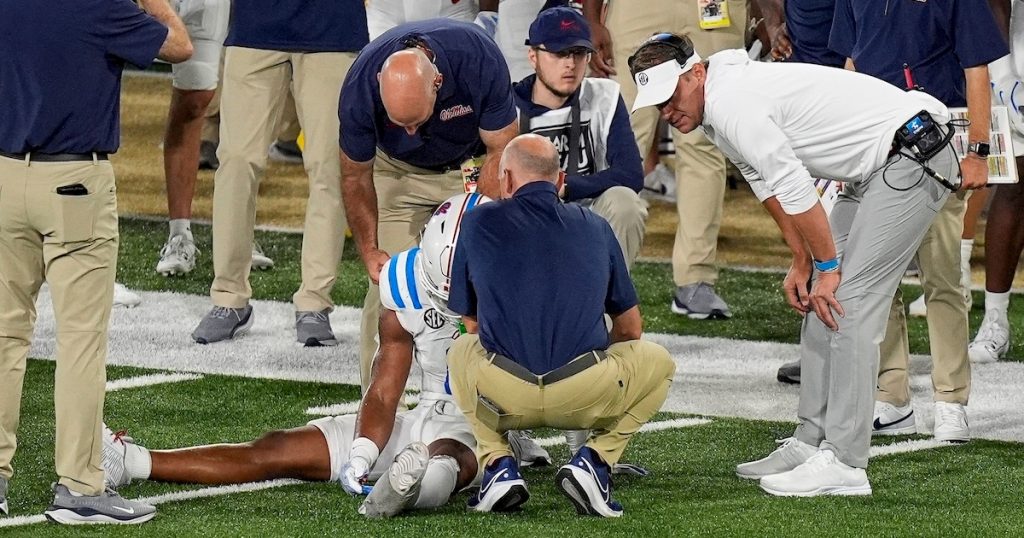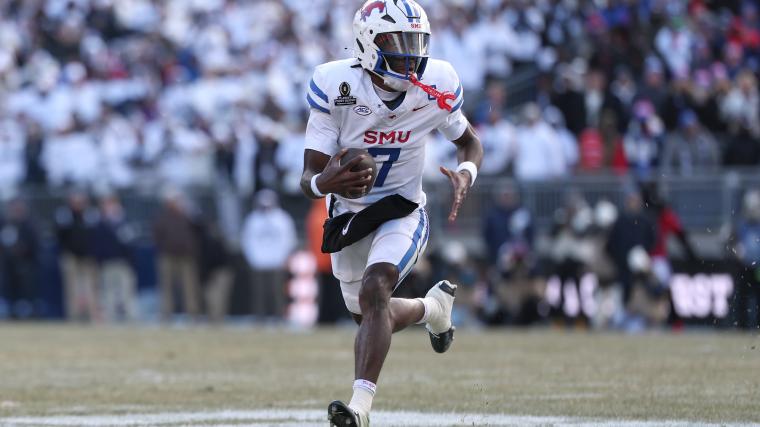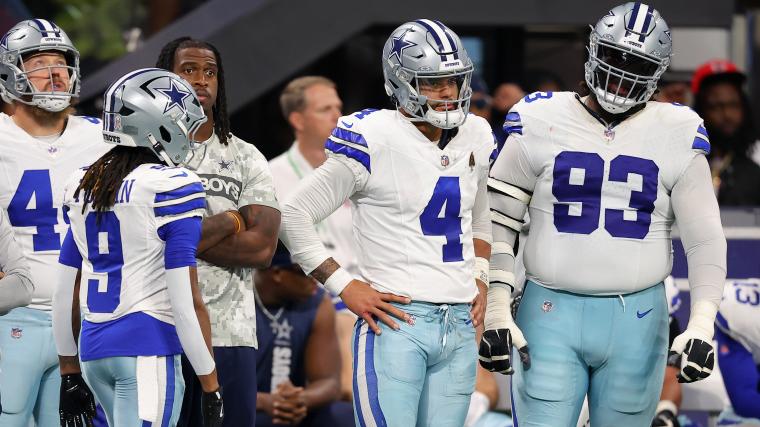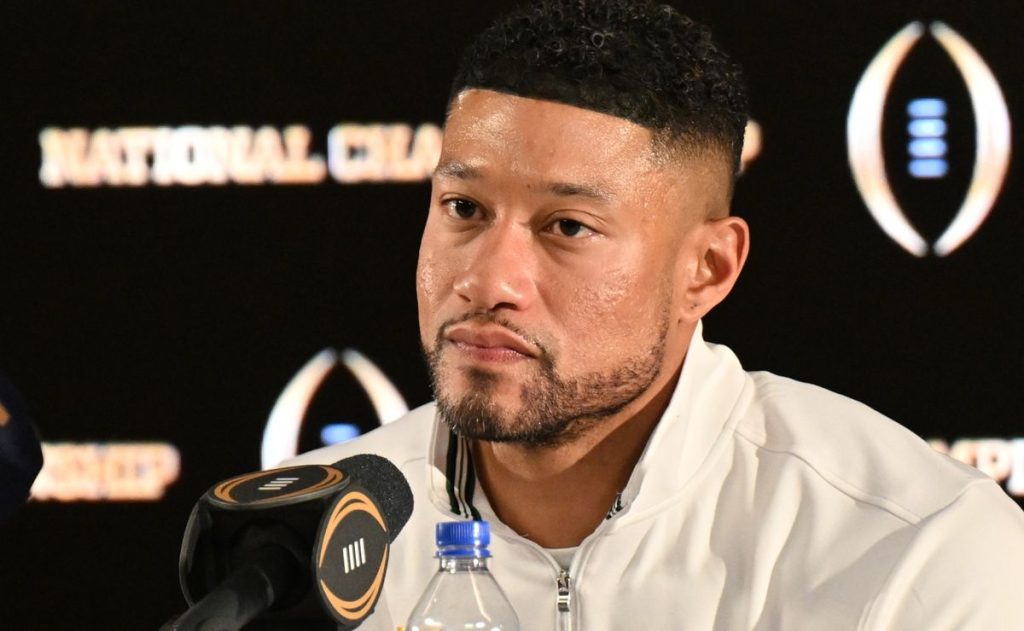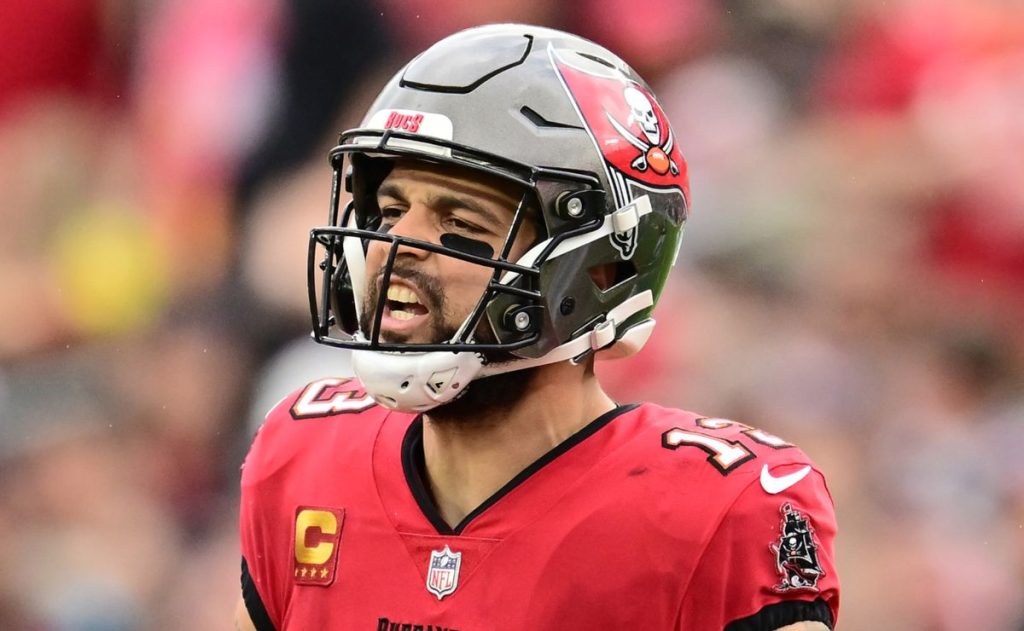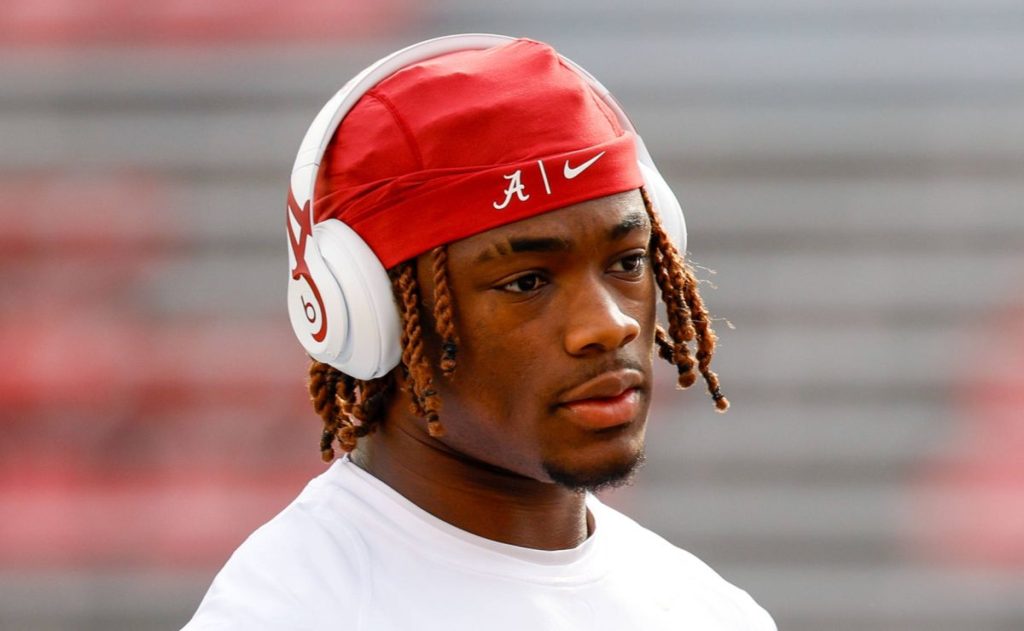A significant rule change regarding player injuries is on the horizon for college football, as discussions heat up at the AFCA Convention in Charlotte. The proposed change aims to tackle the controversial issue of players feigning injuries to disrupt the pace of play, particularly among fast-paced offenses.
Proposed Rule Change: Impact on Players and Teams
According to reports, if a player is injured during a game, he would be required to sit out for the remainder of that drive. This rule is designed to deter any attempts to fake injuries, which have become a hot-button topic in college football, especially in the Southeastern Conference (SEC). Coaches would have the option to use a timeout to reinstate the injured player if necessary, adding a strategic layer to the game.
Coaches Weigh In: A Mixed Bag of Reactions
The discussions surrounding this rule change have sparked varied reactions among coaches. Ole Miss head coach Lane Kiffin expressed his support for the potential rule, emphasizing the negative impact that faking injuries has on teams that rely on a fast tempo. “I’m glad,” Kiffin stated. “I know some people say, okay, that sounds weird coming from me. We’re a tempo offense. I’ve been saying this for years, okay, that faking an injury hurts us more than anybody — us and Tennessee — probably more than anybody in America.”
Kiffin’s sentiments reflect a broader frustration within the coaching community. He noted that his team has been particularly affected by this issue, stating, “Happens to us more than anybody. Happened last week. Over and over again.” It’s clear that the need for a solution is felt across the board, as teams strive to maintain the integrity of the game.
The SEC’s Stance: Taking Action Against Faking Injuries
Earlier in the season, the SEC announced that it would begin implementing punishments for players who are found to be faking injuries. This decision was welcomed by many, including Kiffin, who has been vocal about the need for stricter measures. “We issued a statement weeks ago about this,” he said, underscoring the urgency of the matter.
The SEC’s move to address this issue is a significant step forward. With the growing prevalence of tempo offenses, the league recognizes the need to maintain a fair playing field. The introduction of penalties for faking injuries could serve as a deterrent, encouraging players to play honestly and keeping the game flowing smoothly.
Media Spotlight: Highlighting the Issue
The media has also played a role in bringing attention to this issue. Broadcaster Sean McDonough pointed out a specific incident during an SEC matchup between Ole Miss and Kentucky, where an Ole Miss player appeared to go to the ground, seemingly feigning an injury. At that time, rules analyst Matt Austin noted that there was no specific rule against such actions, highlighting a gap in the regulations that could lead to confusion and frustration among teams.
This incident exemplifies the challenges that coaches face in addressing the issue of faking injuries. As the conversation continues, it’s essential for the NCAA to consider implementing clear guidelines that can help prevent such situations in the future.
The Bigger Picture: Why This Matters
The proposed rule change is not just about punishing players; it’s about preserving the spirit of college football. The game is built on competition, integrity, and sportsmanship. When players feign injuries, it undermines these core values and disrupts the flow of the game. Fast-paced offenses are becoming increasingly popular, and the ability to maintain that tempo is crucial for success.
Moreover, the potential rule change could have far-reaching implications for how teams strategize and prepare for games. Coaches may need to rethink their approach to player management and game tactics, knowing that any injury could result in a player being sidelined for an entire drive. This could lead to more thoughtful game planning and a greater emphasis on player health and safety.
Looking Ahead: What’s Next for College Football?
As discussions continue at the AFCA Convention, it will be interesting to see how this proposed rule change evolves. Will it gain traction among head coaches? Will the NCAA take decisive action to implement new regulations? The answers to these questions could reshape the landscape of college football as we know it.
In conclusion, the proposed rule change regarding player injuries is a crucial step toward ensuring the integrity of the game. As college football continues to evolve, addressing the issue of faking injuries is essential for maintaining a fair and competitive environment. With strong support from coaches like Lane Kiffin and the SEC’s commitment to punishing offenders, we may soon see a more transparent and honest game that prioritizes the spirit of competition.

